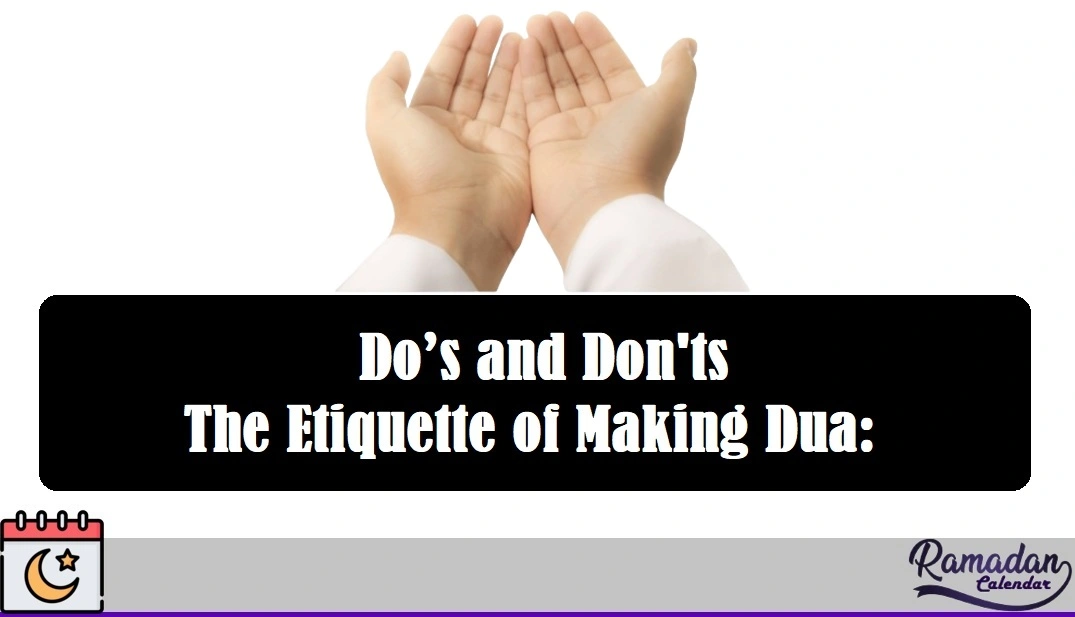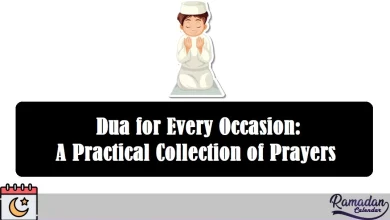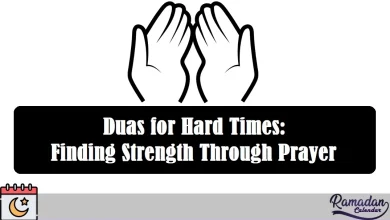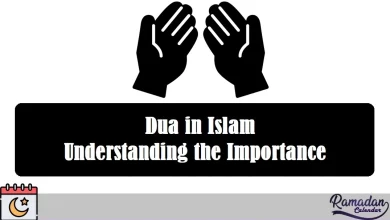
The Etiquette of Making Dua: Do’s and Don’ts: Dua (supplication) is a sacred and transformative act of worship in Islam, offering believers a direct line to their Creator. Through dua, we express our deepest hopes, seek guidance, and pour out our gratitude and concerns. However, like all acts of worship, there is an etiquette that enhances the sincerity, effectiveness, and spiritual benefits of supplication. This article delves into the do’s and don’ts of making dua, ensuring that every prayer resonates with faith and humility.
The Importance of Etiquette in Dua
Dua is not just a verbal request; it is an act of devotion and a means of strengthening our relationship with Allah. Observing the proper etiquette reflects our reverence and sincerity. The Prophet Muhammad (peace be upon him) emphasized the significance of dua, saying:
“Dua is worship.” (Sunan At-Tirmidhi)
By adhering to the etiquette of dua, we honor its sanctity and demonstrate our trust in Allah’s mercy and wisdom.
Do’s of Making Dua
Begin with Praise and Gratitude:
Start your dua by glorifying Allah and expressing gratitude for His countless blessings. Praise Him using His beautiful names and attributes, such as Al-Rahman (The Most Merciful) and Al-Wahhab (The Bestower).
Example: “O Allah, You are the Most Merciful, the Creator of all that exists. All praise is due to You alone.”
Invoke Blessings Upon the Prophet Muhammad (peace be upon him):
Sending salawat (blessings) upon the Prophet before and after your supplication is a recommended practice. The Prophet (peace be upon him) said:
“Every dua is kept back until you send blessings upon the Prophet.” (Sunan Al-Tirmidhi)
Be Sincere and Humble:
Approach Allah with a sincere heart, full of humility and submission. Remember, Allah knows what is in your heart, so be honest in your supplications.
Be Specific and Personal:
Clearly articulate your needs and desires. Whether you’re asking for forgiveness, guidance, or specific blessings, being precise shows your awareness of your own needs and reliance on Allah.
Raise Your Hands:
The act of raising your hands while making dua is a physical gesture of humility and dependence. It is a Sunnah that adds sincerity to your supplication.
Choose Optimal Times for Dua:
Certain times are particularly blessed for making dua, including:
- During the last third of the night.
- Between the adhan and iqamah.
- After obligatory prayers.
- On Fridays, especially during the last hour before Maghrib.
Be Persistent:
Repeating your dua consistently and not giving up demonstrates your trust in Allah’s timing. The Prophet (peace be upon him) said:
“Allah is generous and shy. He is shy to turn away the hands of His servant empty when he raises them to Him.” (Sunan Abu Dawood)
Have Good Expectations:
Believe in Allah’s ability to respond to your dua. Approach supplication with hope, not despair.
Don’ts of Making Dua
Avoid Haste:
Do not rush or become impatient if your dua is not answered immediately. The Prophet (peace be upon him) warned against saying:
“I made dua, but it was not answered.” (Sahih Bukhari)
Trust that Allah will answer your dua in the best way and at the right time.
Do Not Be Distracted:
Engage in dua with full focus and attention. Avoid distractions, such as phones or conversations, that might dilute your sincerity.
Do Not Be Overly Formal or Insincere:
Dua is a personal conversation with Allah. Avoid using flowery language for show; instead, speak from your heart.
Avoid Asking for Sinful or Harmful Things:
Never use dua to seek harm for others or to ask for things that contradict Islamic principles. Dua should reflect goodness, compassion, and righteousness.
Do Not Neglect Others:
While making dua for yourself is important, also include prayers for your family, community, and the entire ummah. The Prophet (peace be upon him) said:
“The dua of a Muslim for his brother in his absence will be accepted.” (Sahih Muslim)
Avoid Neglecting Gratitude:
Failing to thank Allah for His blessings can make your supplications less meaningful. Gratitude amplifies the sincerity of your requests.
Balancing Hope and Fear in Dua
A balanced approach to dua involves maintaining hope in Allah’s mercy while being mindful of His justice. This balance ensures that your supplications are made with genuine faith and humility. Allah says:
“Call upon Him in fear and aspiration. Indeed, the mercy of Allah is near to the doers of good.” (Surah Al-A’raf, 7:56)
The Power of Consistency in Dua
Making dua a daily habit can profoundly impact your spiritual life. Even small, consistent supplications carry immense weight. The Prophet (peace be upon him) taught:
“The most beloved of deeds to Allah are those that are consistent, even if they are small.” (Sahih Bukhari)
Conclusion
Dua is a gift that bridges the gap between human vulnerability and divine mercy. By observing the do’s and avoiding the don’ts, we can make our supplications more impactful and heartfelt. Remember that Allah loves to hear from His servants, no matter how big or small their concerns may be. Approach dua with sincerity, patience, and unwavering trust, and you will experience the transformative power of this beautiful act of worship. Let your dua be a reflection of your faith, hope, and love for Allah, knowing that He is always near and ready to respond.





